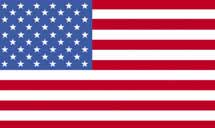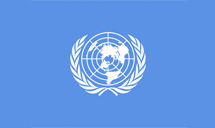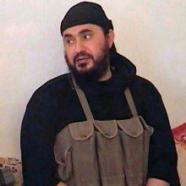Overview
Abu Musab al-Zarqawi, born Ahmad Fadil Nazal al-Khalayleh, was the founder of ISIS’s predecessor, al-Qaeda in Iraq (AQI), and the former leader of two other terrorist organizations: al-Tawhid wal-Jihad and Jund al-Sham.“Foreign Terrorist Organization: Designation of Jama'at al-Tawhid wa'al-Jihad and Aliases,” U.S. Department of State, October 15, 2004, http://2001-2009.state.gov/r/pa/prs/ps/2004/37130.htm. Notorious for his videotaped beheadings, Zarqawi was implicated in numerous terrorist attacks and became the United States’ most-wanted terrorist in Iraq in 2005.Associated Press, “Al-Zarqawi tops U.S. most-wanted list in Iraq,” NBC News, February 22, 2005, http://www.nbcnews.com/id/7011803/ns/world_news-mideast_n_africa/t/al-zarqawi-tops-us-most-wanted-list-iraq/. He was killed by a U.S. airstrike in June 2006.Ellen Knickmeyer and Jonathan Finer, “Insurgent Leader Al-Zarqawi Killed in Iraq,” Washington Post, June 8, 2006, http://www.washingtonpost.com/wp-dyn/content/article/2006/06/08/AR2006060800114.html.
Zarqawi was born and raised in the Jordanian town of Zarqa.Mary Anne Weaver, “The Short, Violent Life of Abu Musab al-Zarqawi,” Atlantic, July 1, 2006, http://www.theatlantic.com/magazine/archive/2006/07/the-short-violent-life-of-abu-musab-al-zarqawi/304983/. He was known for drinking and fighting at a young age, soon graduating to criminal activity.Lawrence Joffe, “Abu Musab al-Zarqawi obituary,” Guardian (London), June 8, 2006, https://www.theguardian.com/news/2006/jun/09/guardianobituaries.alqaida. At age 15, Zarqawi was involved in a robbery and murder at his relative’s home, and two years later he dropped out of school. By the time he was 23 years old, Zarqawi was the subject of 37 criminal cases. He decided to travel to Afghanistan and wage jihad for the first time in 1989.Mary Anne Weaver, “The Short, Violent Life of Abu Musab al-Zarqawi,” Atlantic, July 1, 2006, http://www.theatlantic.com/magazine/archive/2006/07/the-short-violent-life-of-abu-musab-al-zarqawi/304983/. There, Zarqawi trained at a camp established by Osama bin Laden and Abdullah Azzam in Pakistan near the Afghan border, under al-Qaeda military chief Mohammed Atef.Mary Anne Weaver, “The Short, Violent Life of Abu Musab al-Zarqawi,” Atlantic, July 1, 2006, http://www.theatlantic.com/magazine/archive/2006/07/the-short-violent-life-of-abu-musab-al-zarqawi/304983/.
Following the end of the Soviet-Afghan War, Zarqawi returned to Jordan in 1993 to form a militant Islamist group there. The group, which sought to overthrow the Jordanian kingdom, came to be known as al-Tawhid wal-Jihad. Zarqawi was arrested later that year after several bombing attempts in Jordan and received a sentence of 15 years in jail in 1994. During his time in prison, Zarqawi further self-radicalized while attempting to recruit other prisoners. He and fellow inmate Abu Muhammad al-Maqdisi would use the Internet to broadcast their jihadist messages. In 1998, Zarqawi’s messages came to the attention of Osama bin Laden in Afghanistan.Mary Anne Weaver, “The Short, Violent Life of Abu Musab al-Zarqawi,” Atlantic, July 1, 2006, http://www.theatlantic.com/magazine/archive/2006/07/the-short-violent-life-of-abu-musab-al-zarqawi/304983/.
In May 1999, Jordan’s King Abdullah II declared a general amnesty and Zarqawi was subsequently released. [1] He is believed to have immediately reengaged in terrorist activities, and the Jordanian government later declared him a suspect in foiled terrorist attacks planned for New Year’s Eve 1999.[2] After several months at home in Zarqa, Zarqawi fled the country for Pakistan. In December 1999, he crossed the border into Afghanistan and met with bin Laden at the Government Guest House in Kandahar, Taliban’s de facto capital. [3] According to Israeli intelligence and witnesses at the meeting, bin Laden immediately “disliked” Zarqawi because he was aggressive and had openly criticized bin Laden and al-Qaeda. Bin Laden found Zarqawi’s fiercely anti-Shiite rhetoric to be extreme.However, following debate within al-Qaeda’s leadership, Zarqawi received $5,000 to establish his own camp in Afghanistan near the Iran border and developed his new group, Jund al-Sham.Mary Anne Weaver, “The Short, Violent Life of Abu Musab al-Zarqawi,” Atlantic, July 1, 2006, http://www.theatlantic.com/magazine/archive/2006/07/the-short-violent-life-of-abu-musab-al-zarqawi/304983/;
Thom Patterson, “The unlikely godfather of the Islamic State,” CNN, July 3 2016, http://www.cnn.com/2016/06/29/middleeast/declassified-zarqawi-father-of-isis/index.html.
In October 2001, following al-Qaeda’s September 11 attacks, Zarqawi and his fighters joined forces with al-Qaeda and the Taliban in Afghanistan, where he was wounded in an U.S. airstrike. In December of that year, Zarqawi and 300 Jund al-Sham fighters relocated to Iran to establish a base there, and Zarqawi remained there for 14 months before traveling to northern Iraq, Syria and South of Lebanon.Mary Anne Weaver, “The Short, Violent Life of Abu Musab al-Zarqawi,” Atlantic, July 1, 2006, http://www.theatlantic.com/magazine/archive/2006/07/the-short-violent-life-of-abu-musab-al-zarqawi/304983/. Zarqawi re-entered Iraq sometime after the U.S.-led invasion the country, attracting more sympathizers and fighters. In October 2004, Zarqawi declared himself the emir of al-Qaeda’s satellite in Iraq, al-Qaeda in Iraq (AQI).Ted Kemp, “Abu Musab al-Zarqawi is the man who founded ISIS,” CNBC, August 11, 2016, http://www.cnbc.com/2016/08/11/who-founded-isis-abu-musb-al-zarqawi-started-the-terror-group.html. In December 2004, bin Laden accepted Zarqawi’s pledge of allegiance, essentially sanctioning his role as the leader of an al-Qaeda franchise.Lawrence Joffe, “Abu Musab al-Zarqawi obituary,” Guardian (London), June 8, 2006, https://www.theguardian.com/news/2006/jun/09/guardianobituaries.alqaida.
During the U.S. war in Iraq, Zarqawi continued his spate of deadly terrorist attacks and rose to global infamy with his kidnappings and killings of foreigners. Zarqawi became notorious for his videotaped beheadings, starting with the killing of U.S. citizen Nicholas Berg in May 2004.Lawrence Joffe, “Abu Musab al-Zarqawi obituary,” Guardian (London), June 8, 2006, https://www.theguardian.com/news/2006/jun/09/guardianobituaries.alqaida. ISIS, AQI’s successor, has since adopted Zarqawi’s infamous practice. The group has also filmed other forms of gruesome violence against its hostages, including the horrific murder of Jordanian pilot Moaz al-Kasasbeh, and has also adopted Zarqawi’s practice of engaging in brutal sectarian violence.Thom Patterson, “The unlikely godfather of the Islamic State,” CNN, July 3 2016, http://www.cnn.com/2016/06/29/middleeast/declassified-zarqawi-father-of-isis/index.html.
In the mid-2000s, Zarqawi continued to alienate his former supporters, including al-Qaeda’s senior leaders and some Iraqi Sunni Muslims. On November 9, 2005, a series of bombs claimed by AQI ripped through three hotels throughout Amman, killing 60 people and prompting outcry from Iraqi Sunnis.Lawrence Joffe, “Abu Musab al-Zarqawi obituary,” Guardian, June 8, 2006, https://www.theguardian.com/news/2006/jun/09/guardianobituaries.alqaida. In November 18, 2005, Zarqawi was disowned by his former cohort, Maqdisi, for attacking civilians during the Amman hotel bombings.Ian Black, “Jordan releases jihadi cleric and Isis critic after group’s murder of pilot,” Guardian, February 5, 2015, http://www.theguardian.com/world/2015/feb/05/jordan-release-jihadi-cleric-al-maqdisi-isis-killing-pilot-al-kasasbeh.
The United States intensified its hunt for Zarqawi in late 2005 and 2006.Thom Patterson, “The unlikely godfather of the Islamic State,” CNN, July 3 2016, http://www.cnn.com/2016/06/29/middleeast/declassified-zarqawi-father-of-isis/index.html. On June 7, 2006, after weeks of tracking him, U.S. warplanes targeted a house in which Zarqawi was convening a meeting. Zarqawi was later confirmed dead along with several other prominent insurgent leaders by U.S. intelligence and al-Qaeda.Ellen Knickmeyer and Jonathan Finer, “Insurgent Leader Al-Zarqawi Killed in Iraq,” Washington Post, June 8, 2006, http://www.washingtonpost.com/wp-dyn/content/article/2006/06/08/AR2006060800114.html.
Associated Groups
- Extremist entity
- Al-Qaeda in Iraq
- Type(s) of Organization:
- Non-state actor, terrorist, transnational, violent
- Ideologies and Affiliations:
- Pan-Islamist, Salafist, Jihadist, takfirist, Sunni
- Position(s):
- Leader, founder
History
United States

The U.S. Department of the Treasury designated Abu Musab al-Zarqawi as a Specially Designated Global Terrorist on September 23, 2003.“Terrorism: What You Need to Know About U.S. Sanctions,” U.S. Department of the Treasury, http://www.treasury.gov/resource-center/sanctions/Programs/Documents/terror.txt.
United Nations

The United Nations added “Ahmad Fadil Nazal al-Khalayleh” (Abu Musab al-Zarqawi) to its Al-Qaida Sanctions List on September 23, 2003.“Security Council Committee Approves Amendments to Identifying of 60 Individuals on Consolidated List,” United Nations Security Council, July 31, 2007, http://www.un.org/press/en/2007/sc9087.doc.htm.
